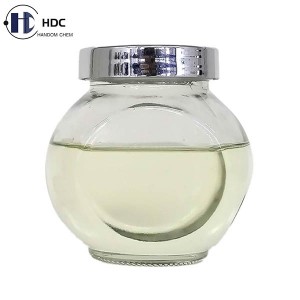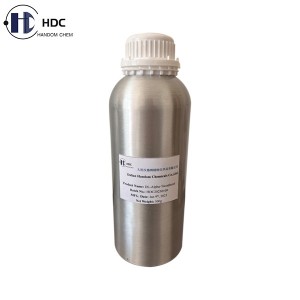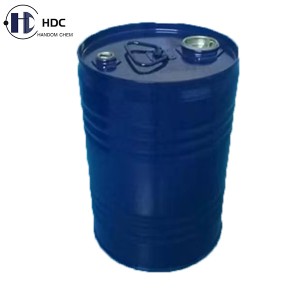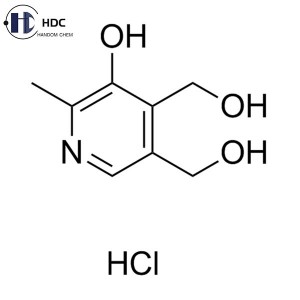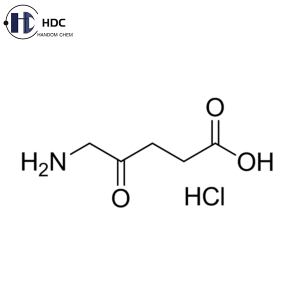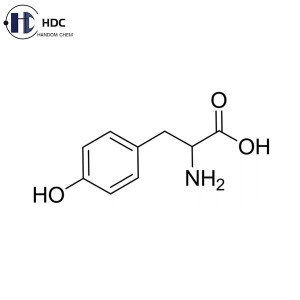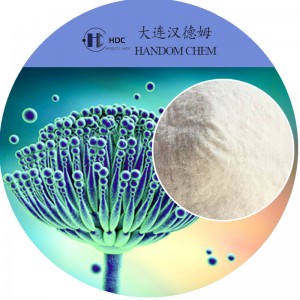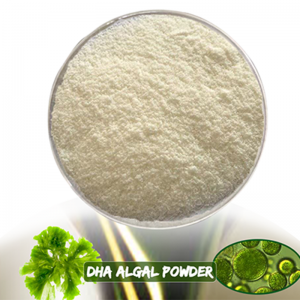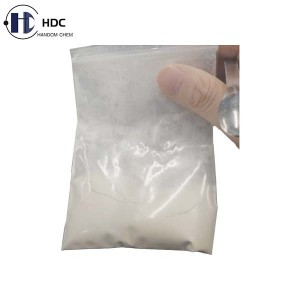DL-Alpha Tocopheryl Acetate
Brief Introduction:
DL-Alpha-Tocopheryl Acetate is the general name of tocopherol (T) and tocotrienol (T-3), and is a fat-soluble vitamin. An important component of the cell membrane. It is also the main antioxidant in cell membranes. DL-α-tocopheryl acetate is widely found in animal and plant foods: Animal foods are mainly da-type; Vegetable oils have a higher content of DL-α-tocopherol acetate, which is parallel to the content of polyene fatty acids such as linoleic acid.
DL-α-Tocopheryl acetate is an antioxidant of polyene fatty acids. It combines with the pol-yunsaturated fatty acid(PUFA) of membrane phospholipids on the cell membrane to form a complex to stabilize the membrane structure, preventing PUFA on biofilms and sulfur-containing enzymes in cells from being damaged by oxidants. When DL-α-tocopherol acetate is deficient, the PUFA on the red blood cell membrane is prone to peroxidation, causing damage to the red blood cell membrane and causing hemolysis.
Character:
DL-Alpha Tocopheryl Acetate is a slightly yellow to yellow or yellow-green clear viscous liquid; almost odorless; its color gradually turns darker when exposed to light. The natural type will solidify when placed and melts at around 25°C.
This product is easily soluble in absolute ethanol, acetone, ether or vegetable oil, but insoluble in water.
Specifications of our DL-Alpha Tocopheryl Acetate:
| Test Items | Test Methods | Acceptance Criteria | |
| Description | Visual | Clear, colourless slightly greenish-yellow, Viscous, oily liquid, Ph.Eur./USP/FCC | |
| Identification | Optical Rotation | Ph.Eur.2.2.7 | -0.01°~ +0.01°, Ph.Eur. |
| IR | Ph.Eur.2.2.24 | To conform, Ph.Eur./USP/FCC | |
| Colour Reaction | USP | To conform, USP/FCC | |
| Retention Time | GC | To conform, USP/FCC | |
| Related Substances | Impurity A | Ph.Eur.2.2.28 | Not more than 0.5% |
| Impurity B | Ph.Eur.2.2.28 | Not more than 1.5% | |
| Impurity C | Ph.Eur.2.2.28 | Not more than 0.5% | |
| Impurities D and E | Ph.Eur.2.2.28 | Not more than 1.0% | |
| Any other impurity | Ph.Eur.2.2.28 | Not more than 0.25% | |
| Total impurities | Ph.Eur.2.2.28 | Not more than 2.5% | |
| Acidity | USP/FCC | Not more than 1.0mL | |
| Residual Solvents | Ph.Eur.2.4.24 USP<467> | To conform (In-house) | |
| Heavy Metals | Lead (Pb) | AA | Not more than 2 mg/kg, FCC |
| Arsenic (As) | ChP0822 | Not more than 1 mg/kg (In-house) | |
| Copper (Cu) | ICP-MS | Not more than 25 mg/kg (In-house) | |
| Zinc (Zn) | ICP-MS | Not more than 25 mg/kg (In-house) | |
| Palladium (Pd) | AA | Not more than 5 mg/kg (In-house) | |
| Assay (Ph.Eur.) | Ph.Eur.2.2.28 | 96.5% ~ 102.0%, Ph. Eur. | |
| Assay (Ph.Eur.) | Ph.Eur.2.2.28 | 434.3mg α-tocopherol/g ~ 459.0mg α-tocopherol/g, Ph.Eur. | |
| Assay (USP/FCC) | Ph.Eur.2.2.28 | 96.0% ~ 102.0%, USP/FCC | |
| Assay (USP/FCC) | Ph.Eur.2.2.28 | 432.0mg α-tocopherol/g ~ 459.0mg α-tocopherol/g, USP/FCC | |
| Microbial Limit Test | Total aerobic microbial count | USP<61> Ph.Eur.2.6.12 | Not more than 1000 CFU/g |
| Total yeast and mould count | USP<61> Ph.Eur.2.6.12 | Not more than 100 CFU/g | |
| Escherichia coli | USP<62> Ph.Eur.2.6.13 | Negative/g | |
| Pseudomonas aeruginosa | USP<62> Ph.Eur.2.6.13 | Negative/g | |
| Staphylococcus aureus | USP<62> Ph.Eur.2.6.13 | Negative/g | |
| Enterobacterial | USP<62> Ph.Eur.2.6.13 | Negative/g | |
| Salmonella | USP<62> Ph.Eur.2.6.13 | Negative/10g | |
Test Standard:
Ph.Eur./USP/FCC
Pharmacological Effects:
DL-alpha-tocopherol acetate is an essential nutrient whose exact function is unknown and is an antioxidant. It can combine with selenium in the diet to protect cell membranes and other cell structures from polyvalent unsaturated fatty acids from free radical damage, protect red blood cells from hemolysis, and protect nerves and muscles from oxygen free radical damage, maintains the normal development and function of nerves and muscles, and may also be a cofactor for certain enzyme systems.
It affects reproductive function, lipid metabolism, etc. It can cause hyperactivity of adenohypophysis gonadotrophic secretory cells, increase secretion, and promote sperm production and activity, increase ovarian function, increase follicles, luteal cells and enhance the effect of progesterone; Deficiency can cause damage to the animal's reproductive organs, making it difficult for fertilization or causing habitual abortion. It can also improve lipid metabolism. When lacking, it can increase the levels of cholesterol and triacylglycerol in animals, leading to atherosclerosis.
Large doses of DL-α-tocopherol acetate can promote the proliferation of capillaries and small blood vessels and improve peripheral circulation. It has also been reported that it can improve metabolic abnormalities in diabetes.
Indications:
Supportive care for some conditions includes various types of cataracts, diabetic retinopathy, optic atrophy, viral keratitis, ophthalmoplegia, various types of chorioretinopathy, retrolental fibroplasia, primary retinitis pigmentosa, macular degeneration, corneal degeneration and malignant exophthalmos, etc.
Also used for coronary atherosclerotic heart disease (coronary heart disease) and lipid metabolism disorders; also used for anti-aging.
Packaging:
20kg/Drum or according to the specific requirements from customers.
Storage Conditions:
Preserved in unopened original containers in a cool dry place before using; kept away from direct sunlight, heat and moisture.
Shelf Life:
36 months if stored under above mentioned conditions.



